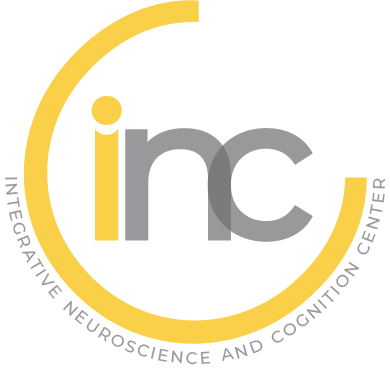Speaker
-
Francesco BattagliaDonders Institute for Brain, Cognition and Behaviour - Radboud University - The Netherlands
Hippocampal gamma oscillations mediating cortico-hippocampal oscillations and shaping hippocampal temporal code, by Francesco Battaglia
Hippocampal gamma oscillations mediating cortico-hippocampal oscillations and shaping hippocampal temporal code
Summary
Theta sequences and phase precession shape hippocampal activity and are considered key underpinnings of memory formation. Theta sequences are sweeps of spikes from multiple cells, tracing trajectories from past to future. Phase precession is the correlation between theta firing phase and animal position. Here, we reconsider these temporal processes in CA1 and the computational principles that they are thought to obey. We find stronger heterogeneity than previously described: we identify cells that do not phase precess but reliably express theta sequences. Other cells phase precess only when medium gamma (linked to Entorhinal inputs) is strongest. The same cells express more sequences, but not precession, when slow gamma (linked to CA3 inputs) dominates. Moreover, sequences occur independently in distinct cell groups. Our results challenge the view that phase precession is the mechanism underlying the emergence of theta sequences, suggesting a role for CA1 cells in multiplexing diverse computational processes.
Short Biography
Francesco Battaglia has been appointed professor of Neuronal networks of Memory at the Faculty of Science, Mathematics and Computer Science at Radboud University with effect from 1 February 2020. Battaglia has been working as a researcher and Principal Investigator at the Donders Institute for Brain, Cognition and Behavior since 2013. His research focuses on memory and the impact of sleep on the brain.
Francesca Battaglia obtained Masters and PhD degrees in Statistical Physics and Computational Neuroscience, then he moved to experimental neuroscience with his postdoc, where he learned and developed new high density recording techniques. Because of this, he has expertise in statistical physics, theoretical neuroscience, statistical data analysis, neurotechnologies and experimental neurophysiology.
His work has concentrated on neural ensemble recordings in freely behaving rodents (rats and mice), with which we can record up to hundreds of single neurons. He focused on the interaction between hippocampus and neocortex, in memory encoding and consolidation. He developed data analysis techniques to detect the activation of synchronized neuronal groups (‘cell assemblies’).
He has been awarded a ERC Advanced Grant and he is a member of the Academia Europaea.
He is the coordinator of the Dutch Brain Interfaces Initiative, a “Zwaartekracht” project aimed at creating the new generation of Brain-Machine Interfaces.
more informations
